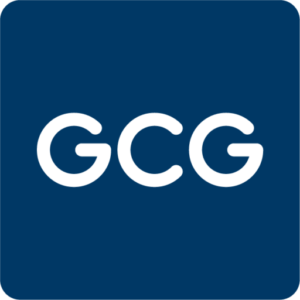
GCG Leadership Development Team
In an era where the confines of traditional office spaces are increasingly being reconsidered, hybrid work models have become a subject of extensive analysis and debate within the corporate world. Fresh insights from a recent study conducted by Trip.com, as documented in the Harvard Business Review, offer a compelling case for the adoption of hybrid work schedules for its 40,000 employees, elucidating their impact on employee satisfaction, retention rates, and overall company profitability.
The Hybrid Model and Employee Productivity
The study executed by Trip.com involved an innovative A/B testing method where 1400 employees were split into two groups; one adhering to a traditional five-day office schedule and the other adopting a three-day office schedule. Initial skepticism about hybrid work potentially reducing productivity was prevalent. However, the results were telling; productivity levels remained consistent across both groups, demonstrating that reducing in-office days does not negatively affect output.
Interestingly, the perception of productivity from the managerial perspective shifted positively post-experiment. Initially, managers estimated a 2.6% decrease in productivity with hybrid work, but post-experiment estimations pointed towards a 1% increase. This highlight reinforces the need for empirical evidence in debunking common misconceptions about remote work setups.
Enhanced Job Satisfaction and Lower Attrition Rates
One of the standout findings from the study was the significant reduction in employee turnover. Employees working under the hybrid model reported higher job satisfaction, with quit rates dropping by 35%. The benefits were even more pronounced among specific demographics, such as female employees and those with lengthy commutes, who saw the most substantial declines in turnover rates. Considering that employee attrition can cost companies like Trip.com at least 50% of an employee’s annual salary, the financial implications of improved retention are substantial.
Critical Ingredients for Successful Hybrid Implementation
Trip.com’s successful integration of hybrid work was anchored in three strategic practices:
- Robust Performance Management System: Routine, detailed performance reviews allowed for real-time adjustments and feedback, ensuring that productivity standards were maintained irrespective of the physical workspace. This rigorous system facilitated transparency and accountability, essential for remote work arrangements.
- Clear Communication of In-Office Schedules: Potential frustrations were minimized by preemptively scheduling and communicating the days employees were expected in the office. This clarity prevented scenarios where team members might find themselves isolated in the office or redundant in remote meetings.
- Strong Leadership Support: The endorsement by Trip.com’s CEO and the executive team was crucial. Leadership buy-in not only catalyzed broader organizational acceptance but also reinforced the legitimacy and strategic importance of the hybrid model within the corporate culture.
The Strategic Advantage of A/B Testing in Management
Trip.com’s experiment underscores the value of A/B testing in refining management practices, a technique commonly reserved for consumer-facing strategies but less frequently applied internally. By methodically testing and analyzing different work models, Trip.com was not only able to assess the immediate impacts on productivity and satisfaction but also fine-tune their approach based on empirical data. This proactive stance on experimentation has fostered a culture of continuous improvement and adaptability.
In Summary – A Model for the Future
The successful implementation of a hybrid work model by Trip.com serves as an inspiring blueprint for other organizations contemplating similar transitions. The positive outcomes related to employee well-being and company economics make a compelling case for the broader adoption of flexible work arrangements. As businesses worldwide navigate the evolving expectations of the modern workforce, integrating data-driven strategies like those employed by Trip.com will be essential. By embracing a culture of innovation and adaptability, companies can enhance their resilience and competitiveness in the changing landscape of work.
This insight into hybrid work models not only illuminates the path forward for many businesses post-pandemic but also emphasizes the necessity of an adaptable, evidence-based approach to workplace management. As we continue to redefine the parameters of professional environments, the lessons drawn from Trip.com’s experiment will undoubtedly influence future policies and practices in the realm of workforce management.
At Global Coach Group (GCG), our network of over 4,000+ experienced coaches is dedicated to delivering tailored leadership coaching to help leaders become more self-aware, improve their communication strategies, and ultimately drive better team performance.
For leaders who want to become coaches or coaches looking to enhance their leadership coaching skills, Global Coach Group (GCG) provides a comprehensive leadership coaching certification program. GCG’s internationally acclaimed coaching tools and resources can help you improve your coaching proficiency and empower you to guide others.

GCG Leadership Development Team
Learn about the GCG's Coaching Tools
Measurable results, in LESS Time.
Reduce your session prep and follow-ups to just 15 minutes, while delivering coaching that improves leadership, team and business performances with 95% coworker satisfaction
